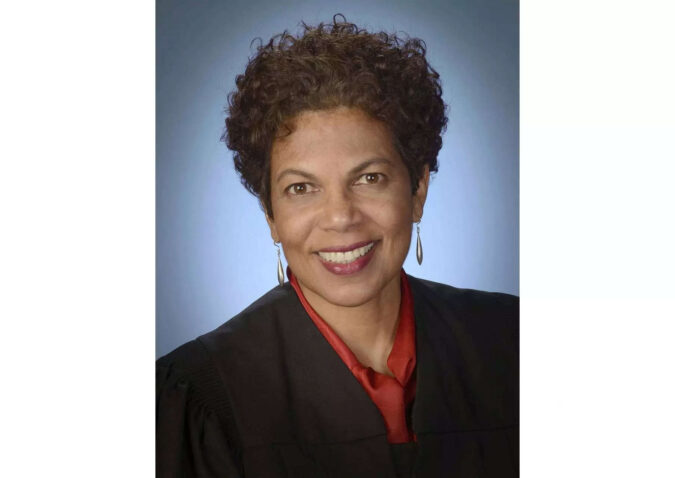US District Judge Tanya Chutkan, a former public defender who was nominated to the bench by former President Barack Obama, was randomly assigned to the case after Trump was indicted Tuesday. Chutkan will preside over what may become one of the more politically consequential legal fights in US history.
The last time Trump had a case before Chutkan, he lost. In November 2021, she rejected his request to block the congressional committee investigating the Capitol riot from obtaining his White House records. Chutkan wrote that she was unpersuaded by executive-privilege arguments made by his lawyers after President Joe Biden had refused to back Trump’s claim.
“Presidents are not kings, and Plaintiff is not President,” Chutkan wrote of Trump. “He retains the right to assert that his records are privileged, but the incumbent President ‘is not constitutionally obliged to honor’ that.”
Trump failed to convince a federal appeals court and the US Supreme Court to overturn Chutkan’s ruling. The lone dissent came from Justice Clarence Thomas.
In the new criminal case against Trump, Chutkan will face the increasingly complicated task of setting a schedule. Trump is fighting separate criminal prosecutions in New York and Florida — and faces possible charges in Georgia — all while he pushes ahead with a 2024 presidential campaign. Trump’s first court appearance in the Washington case is Thursday.
Trump pleaded not guilty in New York and Florida, and he’s derided the criminal cases against him as politically motivated. In a statement Tuesday, his campaign said the Washington indictment involved “fake charges” brought by Biden’s “weaponized Department of Justice” to interfere with the 2024 election.
Chutkan and her colleagues in the US District Court for the District of Columbia have presided over a deluge of cases linked to the Jan. 6 attack. More than 1,000 defendants have been charged so far with everything from major crimes like assaults and seditious conspiracy, which led to long prison terms, to minor infractions for illegally being inside the Capitol.
Chutkan developed an early reputation for imposing tough sentences in Jan. 6 cases, ordering jail terms for multiple defendants that went above what the government requested.
“The country is watching to see what the consequences are for something that has not ever happened in the history of this country before,” the judge said during an October 2021 sentencing. “For actions and crimes that threaten to undermine the rule of law and our democracy.”
Lawful election
In other comments from the bench, Chutkan rejected the false conspiracy theory promoted by Trump and others that the 2020 election was marred by widespread fraud. She called it a “lawfully conducted election.” She also declared a popular conservative talking point comparing the Jan. 6 riot to civil rights protests the previous year a “false equivalency.”
In another Jan. 6 case, Chutkan made clear she was imposing a sentence based on the defendant’s actions, not the defendant’s political beliefs. The judge said she would defend “the right of every person in America” to endorse different political philosophies and candidates.
Trump’s lawyer John Lauro said in a CBS interview that he might argue that the former president can’t get a fair trial in Democrat-majority Washington. But Chutkan and other judges handling Jan. 6 cases have repeatedly denied efforts by defendants to move their cases out of the city based on similar concerns.
In a ruling last spring, Chutkan noted DC judges rejected venue arguments during the Watergate era and more recently when Trump ally Roger Stone was prosecuted. She acknowledged the intense publicity around Jan. 6, but said vetting potential jurors for bias was a task the court could handle during the selection process.
“Jurors’ political leanings are not, by themselves, evidence that those jurors cannot fairly and impartially consider the evidence presented and apply the law as instructed by the court,” she wrote.
Public defender
Chutkan, who was born in Jamaica, earned her law degree in 1987 and joined the Public Defender Service in Washington in 1991. She spent more than a decade in that office, long considered one of the most respected public defender operations in the US. From 2002 until her nomination to the DC bench, she worked at the private law firm Boies, Schiller & Flexner, where her practice included white-collar defense and complex civil litigation.
Before her nomination, federal election records show she made contributions to Obama’s 2008 and 2012 presidential campaigns, but she wasn’t a controversial nominee. In 2014, the US Senate confirmed her 95-0.
Other high-profile defendants to pass through her courtroom include Maria Butina, a Russian national who pleaded guilty to conspiring to act as an agent for the Russian government. The judge sentenced Butina to 18 months in prison, with credit for time served.
Chutkan also ruled against the Trump administration in a major legal fight over whether officials had to allow pregnant, undocumented teenagers in government custody to obtain abortions.
The case is US v Trump, 23-cr-00257, US District Court, District of Columbia (Washington, DC).
